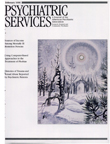Is adaptive coping possible for adult survivors of childhood sexual abuse?
Abstract
Thirty adult women survivors of childhood sexual abuse who believed they were functioning well were selected through advertisements in local newspapers and presentations at an incest-survivor support group. Subjects were assessed by a battery of structured diagnostic interviews and standardized psychological measures, including the MMPI, the Trauma Symptom Checklist-40, and the Dissociative Experiences Scale. The results showed the existence of a subgroup of survivors of childhood sexual abuse who do not have devastating long-term psychological effects. Better adult psychological functioning was predicted by certain characteristics of the abuse, the family system, and the survivors.
Access content
To read the fulltext, please use one of the options below to sign in or purchase access.- Personal login
- Institutional Login
- Sign in via OpenAthens
- Register for access
-
Please login/register if you wish to pair your device and check access availability.
Not a subscriber?
PsychiatryOnline subscription options offer access to the DSM-5 library, books, journals, CME, and patient resources. This all-in-one virtual library provides psychiatrists and mental health professionals with key resources for diagnosis, treatment, research, and professional development.
Need more help? PsychiatryOnline Customer Service may be reached by emailing [email protected] or by calling 800-368-5777 (in the U.S.) or 703-907-7322 (outside the U.S.).



